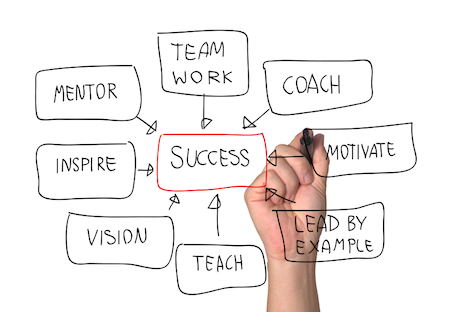Youth Sports Survey Reveals Disconnect Between Parents and Coaches
By Dan Peterson, TeamSnap’s Sports Science Expert
We’ve all been there on the sideline during one of those ugly moments when an unhappy parent snaps at an official, a player or even another parent.The anger is usually triggered by a missed call or the perception of one, and the intensity of a parent’s response and the usual escalation of emotions is usually a sign of some underlying stress. (Honestly, does a botched out-of-bounds call in the middle of a game really deserve yelling and screaming at the ref?) To dig deeper into the emotions of youth sports, Liberty Mutual Insurance, as part of their Responsible Sports initiative, commissioned a survey of sports parents and coaches. The survey’s results were recently released, revealing some surprising findings that suggest that parents often do not practice what they preach.
While we start our kids’ season with the best intentions, somewhere along the road our priorities change. Teams are chosen, positions are established and the reality of the competition begins. “Why didn’t my son start that game?” “I know my daughter is better than her.” “Why am I paying all of this money to have my kid sit on the bench?” Those questions stay inside us, but the stress starts to build.
The Liberty Mutual survey of 1,000 sports parents and 501 coaches peels away some of those underlying feelings. Three out of four surveyed parents say their primary reason for getting their kids involved in sports is to have fun. In fact, 77% say they look for a coach who is caring, while only 59% want the coach to be skilled in the sport. But when it comes to winning, 36% of the coaches report problems with parents who have unrealistic expectations once the season starts.
This sideline competitiveness often boils over into anger. Surveyed coaches complain that parents yell at just about anyone during a game, including coaches (39%), other children (40%), officials (44%) and even their own kids (55%).
Olympic gold medalist Picabo Street, who is an ambassador for the Responsible Sports program, has seen these outbursts first-hand as a mother of four boys.
“Competitiveness at the youth sports level is an important life lesson learned on the playing field but is often misinterpreted to have a “win-at-all-costs” mentality,” said Street. “Healthy competition – which includes learning from losses as much as learning from wins – is essential, and should be balanced with skill building and simply having fun to ensure a positive youth sports experience.”
As a parent, she has initiated that awkward interaction with another parent regarding their negative behavior.
"I was petrified to do it," she said. "For one, I'm Picabo Street, and they're looking at me and saying, 'Why aren't you yelling up and down and expecting our kids to win?' I'm expecting them to win, but I'm not acting a fool about it."
Youth coaches aren’t completely blameless in adding to the game-time pressure. When parents and coaches were asked how important competitiveness was in their young athletes’ age group, coaches placed more emphasis on winning across all three age groups. For elementary-aged kids, 76% of coaches said it was either “somewhat” or “very important”, while only 58% of parents agreed. For competitiveness in middle school and high-school ages, coaches outranked parents 86% to 78% and 91%-88%, respectively.
Despite the passion that is displayed on game day, coaches have a hard time getting parents involved the rest of the week. Even though 9 out of 10 parents say they’re involved in their kids’ sports teams, 46% of coaches claim they struggle with getting parents to help out.
“These findings accentuate the disconnect some parents and coaches have about the role youth sports should play in developing our children into responsible community members,” said James MacPhee, Senior Vice President & Chief Marketing Officer at Liberty Mutual Insurance.
Communication between parents and coaches is the key to a happy season, according to Street.
“I have conversations with the coaches that my kids play for and the people that run the organizations and school programs. [It's important to] talk to those people and say, 'OK, what are the expectations for my kid, the program, the team and what’s a list of priorities’ importance for this year?"
Our kids playing sports is a once in a lifetime experience, so lets enjoy it!
NEW! Free Sports Organization Resources
All of TeamSnap's ebooks, articles, and stories in one place. Access Now
Similar Articles:

Active Video Games Can Get Kids Moving As Much As Being Outdoors
By Dan Peterson, TeamSnap's Sports Science Expert …
Read More

Making Muscles Burn More Calories Could Help Overweight Kids
One of the challenges that overweight kids face is that…
Read More

Research Confirms Youth Sports Participation Reduces Underage Drinking And Smoking
By Dan Peterson, TeamSnap’s Sports Science Expert…
Read More
